Toyota RAV4 vs VW Caddy - Differences and prices compared
Costs and Efficiency:
When it comes to price and running costs, the biggest differences usually appear. This is often where you see which car fits your budget better in the long run.
VW Caddy has a evident advantage in terms of price – it starts at 27800 £, while the Toyota RAV4 costs 35100 £. That’s a price difference of around 7375 £.
Fuel consumption also shows a difference: VW Caddy manages with 0.50 L and is therefore convincingly more efficient than the Toyota RAV4 with 1 L. The difference is about 0.50 L per 100 km.
As for range, the VW Caddy performs clearly perceptible better – achieving up to 121 km, about 46 km more than the Toyota RAV4.
Engine and Performance:
Under the bonnet, it becomes clear which model is tuned for sportiness and which one takes the lead when you hit the accelerator.
When it comes to engine power, the Toyota RAV4 has a decisively edge – offering 306 HP compared to 150 HP. That’s roughly 156 HP more horsepower.
In acceleration from 0 to 100 km/h, the Toyota RAV4 is convincingly quicker – completing the sprint in 6 s, while the VW Caddy takes 11.40 s. That’s about 5.40 s faster.
In terms of top speed, the VW Caddy performs minimal better – reaching 186 km/h, while the Toyota RAV4 tops out at 180 km/h. The difference is around 6 km/h.
Space and Everyday Use:
Whether family car or daily driver – which one offers more room, flexibility and comfort?
Seats: VW Caddy offers distinct more seating capacity – 7 vs 5.
In curb weight, VW Caddy is slightly lighter – 1575 kg compared to 1745 kg. The difference is around 170 kg.
In maximum load capacity, the VW Caddy performs decisively better – up to 3700 L, which is about 2010 L more than the Toyota RAV4.
When it comes to payload, VW Caddy slightly takes the win – 710 kg compared to 600 kg. That’s a difference of about 110 kg.
Who comes out on top?
Overall, the VW Caddy shows itself to be outperforms in nearly all aspects and secures the title of DriveDuel Champion.
It convinces with the more balanced overall package and proves to be the more versatile choice for everyday use.
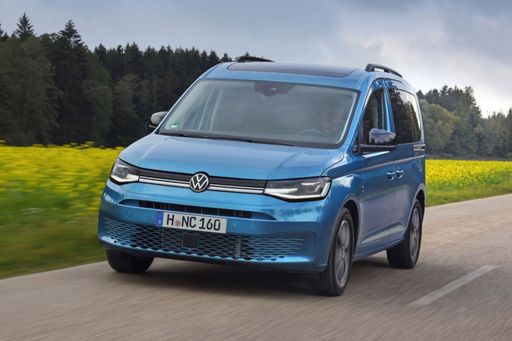 @ Volkswagen AG / VW Media
@ Volkswagen AG / VW Media
VW Caddy
Costs and Consumption
View detailed analysis
Engine and Performance
View detailed analysis
Dimensions and Body
View detailed analysis
Toyota RAV4
The Toyota RAV4 feels like a sensible friend on the road, marrying dependable practicality with a dash of SUV personality that keeps daily driving from turning dull. Comfortable and easy to live with, it looks tough without shouting and quietly gets the job done — a sensible pick for buyers who want versatility without drama.
details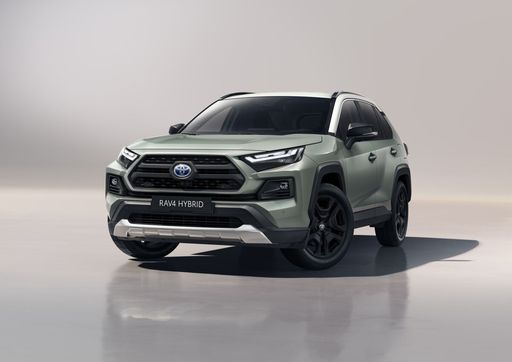 @ Toyota Motor Corporation
@ Toyota Motor Corporation
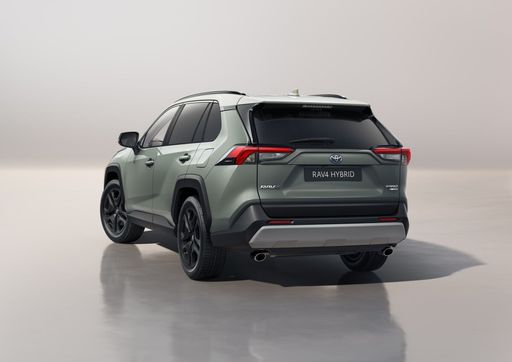 @ Toyota Motor Corporation
@ Toyota Motor Corporation
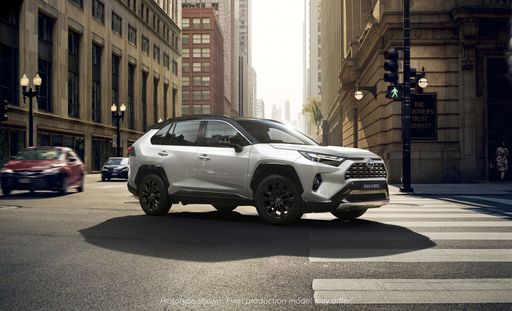 @ Toyota Motor Corporation
@ Toyota Motor Corporation
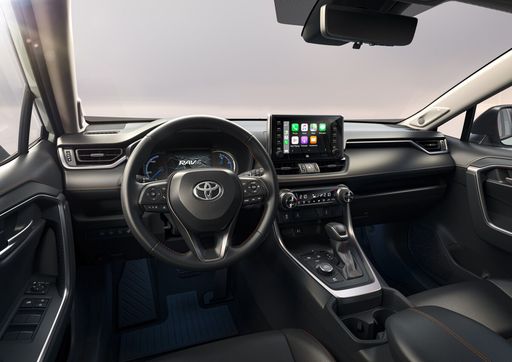 @ Toyota Motor Corporation
@ Toyota Motor Corporation
VW Caddy
The VW Caddy is the Swiss-army knife of compact vans — practical, surprisingly refined, and ready to swap a weekend adventure for a grocery run without breaking a sweat. It’s user-friendly, comfortable enough for daily driving, and sensible for buyers who want utility with a dash of style and no drama.
details @ Volkswagen AG / VW Media
@ Volkswagen AG / VW Media
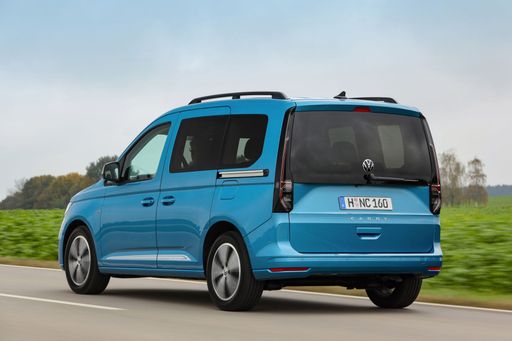 @ Volkswagen AG / VW Media
@ Volkswagen AG / VW Media
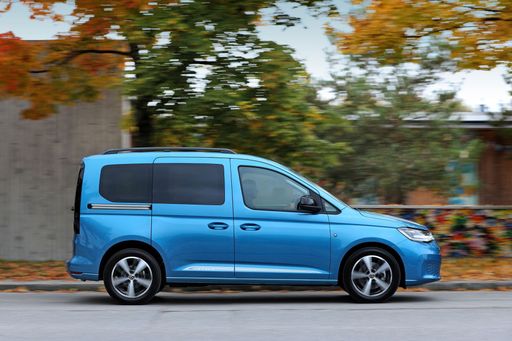 @ Volkswagen AG / VW Media
@ Volkswagen AG / VW Media
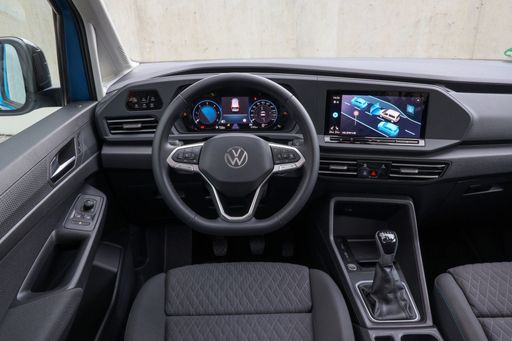 @ Volkswagen AG / VW Media
@ Volkswagen AG / VW Media
 @ Toyota Motor Corporation
@ Toyota Motor Corporation
|
 @ Volkswagen AG / VW Media
@ Volkswagen AG / VW Media
|
|
|
|
Costs and Consumption |
|
|---|---|
|
Price
35100 - 55700 £
|
Price
27800 - 45900 £
|
|
Consumption L/100km
1 - 5.6 L
|
Consumption L/100km
0.5 - 6.9 L
|
|
Consumption kWh/100km
-
|
Consumption kWh/100km
-
|
|
Electric Range
75 km
|
Electric Range
116 - 121 km
|
|
Battery Capacity
-
|
Battery Capacity
19.70 kWh
|
|
co2
22 - 128 g/km
|
co2
10 - 165 g/km
|
|
Fuel tank capacity
55 L
|
Fuel tank capacity
50 L
|
Dimensions and Body |
|
|---|---|
|
Body Type
SUV
|
Body Type
High Roof Estate
|
|
Seats
5
|
Seats
5 - 7
|
|
Doors
5
|
Doors
5
|
|
Curb weight
1745 - 1910 kg
|
Curb weight
1575 - 1998 kg
|
|
Trunk capacity
520 - 580 L
|
Trunk capacity
-
|
|
Length
4600 mm
|
Length
4500 - 4853 mm
|
|
Width
1855 mm
|
Width
1855 mm
|
|
Height
1685 mm
|
Height
1819 - 1860 mm
|
|
Max trunk capacity
1604 - 1690 L
|
Max trunk capacity
2556 - 3700 L
|
|
Payload
390 - 600 kg
|
Payload
501 - 710 kg
|
Engine and Performance |
|
|---|---|
|
Engine Type
Full Hybrid, Plugin Hybrid
|
Engine Type
Petrol, Diesel, Plugin Hybrid
|
|
Transmission
Automatic
|
Transmission
Manuel, Automatic
|
|
Transmission Detail
CVT
|
Transmission Detail
Manual Gearbox, Dual-Clutch Automatic
|
|
Drive Type
Front-Wheel Drive, All-Wheel Drive
|
Drive Type
Front-Wheel Drive, All-Wheel Drive
|
|
Power HP
218 - 306 HP
|
Power HP
102 - 150 HP
|
|
Acceleration 0-100km/h
6 - 8.4 s
|
Acceleration 0-100km/h
11.4 - 14 s
|
|
Max Speed
180 km/h
|
Max Speed
173 - 186 km/h
|
|
Torque
-
|
Torque
220 - 320 Nm
|
|
Number of Cylinders
4
|
Number of Cylinders
4
|
|
Power kW
160 - 225 kW
|
Power kW
75 - 110 kW
|
|
Engine capacity
2487 cm3
|
Engine capacity
1498 - 1968 cm3
|
General |
|
|---|---|
|
Model Year
2024 - 2025
|
Model Year
2024
|
|
CO2 Efficiency Class
D, B
|
CO2 Efficiency Class
E, F, B
|
|
Brand
Toyota
|
Brand
VW
|
What drive types are available for the Toyota RAV4?
Available configurations include Front-Wheel Drive or All-Wheel Drive.
The prices and data displayed are estimates based on German list prices and may vary by country. This information is not legally binding.
